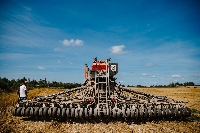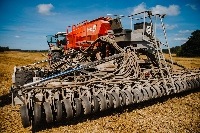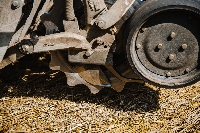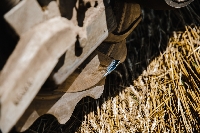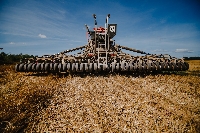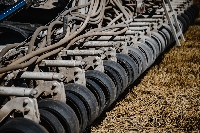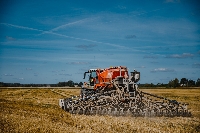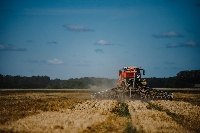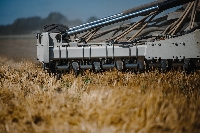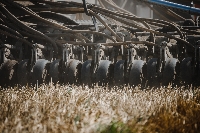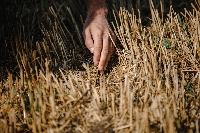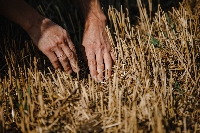In order to reduce the impact of agriculture on the climate, Latvian Fund for Nature, in cooperation with Institute for Environmental Solutions, Latvian Rural Advisory and Training Centre and the Czech Science and Society Center, continues to implement the project “LIFE CRAFT: Climate Responsible Agriculture in Latvia”. In the 2020 field season, the direct sowing method will be tested on eight farms, sowing a total of 143 ha. To compare the results obtained during the project, fields are maintained in several farms, where the owners continue the traditional tillage. These fields have the same growing conditions and crops as the fields sown by the direct sowing method.
Direct sowing is one of the types of plowing technology. When working with this method, the only tillage operation is to cut the seed wire into the soil. In this way, the soil remains almost intact and plant residues remain on it, which protects the soil from the harmful effects of the weather, limits the development of annual weeds, as well as serves as a food base for soil organisms. As a result, the microbiological activity of the soil, structure, water and air circulation, fertility, as well as the resistance of plants growing in it to diseases improve. Working with the direct sowing method reduces the amount of CO2 released from the soil, and the soil successfully absorbs the carbon in the air in the long run through the plants and microorganisms growing in it, thus constantly increasing the organic matter content in the soil. World examples show that fields sown with direct sowing tend to have even higher yields than with traditional tillage. The direct sowing method significantly increases productivity, but reduces labor and fuel consumption, as well as the cost of machinery, repairs and maintenance.
